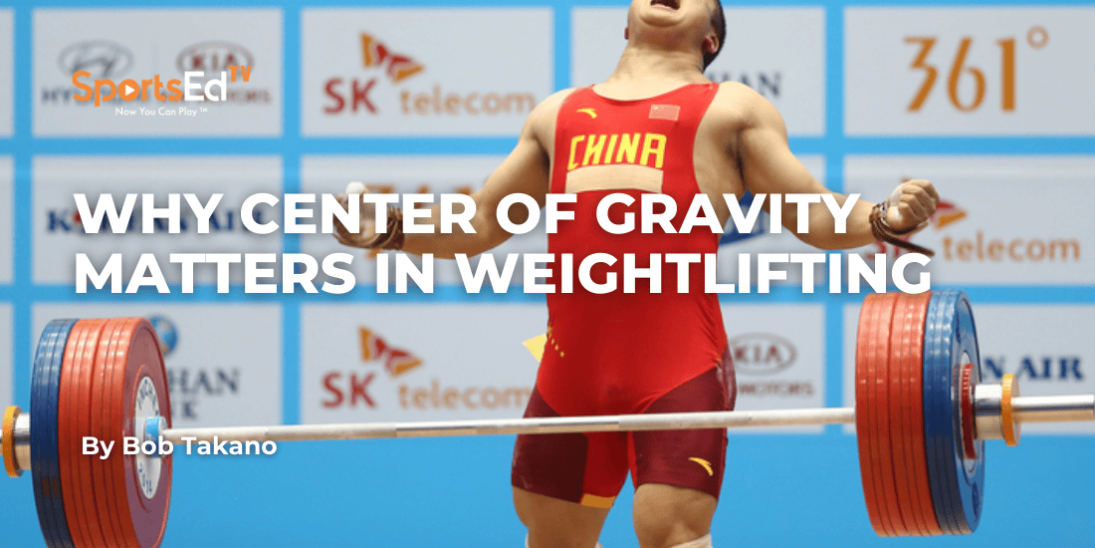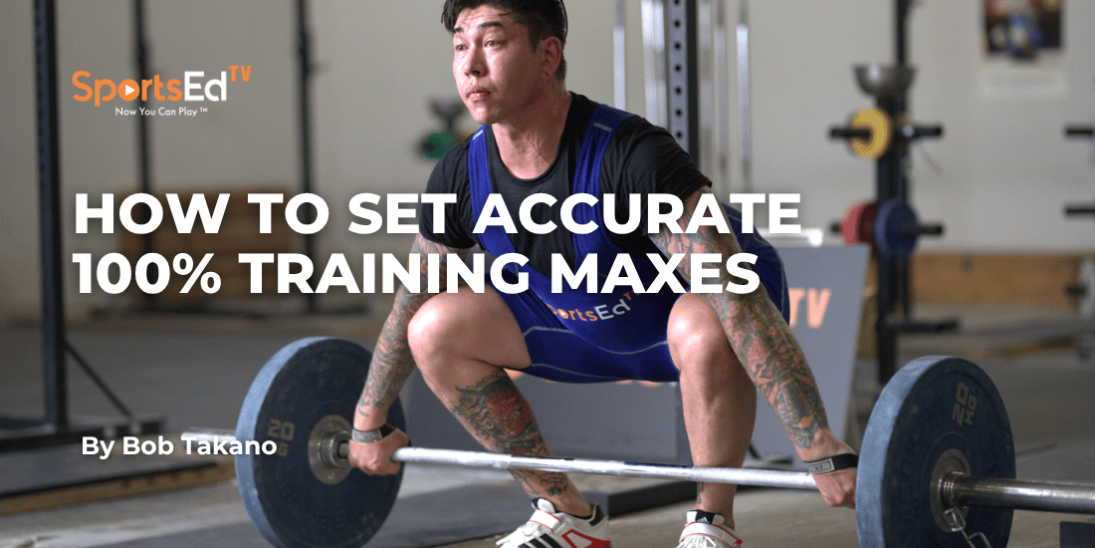Welcome and thanks for visiting...

Planning The Weightlifting Calendar

To see this video, you must be a member. Membership options:
Free - newsletter, video & blog access,
earn

Yearly - full access & member features
earn 5x

US$179 - may be lower outside US
Lifetime - same as yearly, but forever
earn 10x

US$350 - may be lower outside US
earn

Yearly - full access & member features
earn 5x

US$179 - may be lower outside US
Lifetime - same as yearly, but forever
earn 10x

US$350 - may be lower outside US
MySportsEdTV is a community where people share their passion for sports. It’s a place where athletes, coaches and parents can share information and share experiences. It’s a place to make new friends across the globe. Members have access to great features unavailable to non-members. Members receive helpful information via our FREE email newsletters. We always respect your privacy and your data will not be sold or shared
To use this function, you must be a full member. Membership options:
Free - newsletter, all video & blog access
Yearly - full access & member features
US$179 - may be lower outside US
Lifetime - same as yearly, but forever
US$350 - may be lower outside US
You may also use a promo code for payment
Yearly - full access & member features
US$179 - may be lower outside US
Lifetime - same as yearly, but forever
US$350 - may be lower outside US
You may also use a promo code for payment
MYSportsEdTV is a community where athletes, coaches and parents connect and share their sport passion. We don’t sell our member data or send spam. Members will receive our FREE email newsletter to alert you about new video and blog content for the sports you follow.
To use this function, you must be a paid member. Membership options:
Free - newsletter, all video & blog access
Yearly - full access & member features
US$179 - may be lower outside US
Lifetime - same as yearly, but forever
US$350 - may be lower outside US
You may also use a promo code for payment
Yearly - full access & member features
US$179 - may be lower outside US
Lifetime - same as yearly, but forever
US$350 - may be lower outside US
You may also use a promo code for payment
MYSportsEdTV is a community where athletes, coaches and parents connect and share their sport passion. We don’t sell our member data or send spam. Members will receive our FREE email newsletter to alert you about new video and blog content for the sports you follow.
As our year ends, it’s time for weightlifters and coaches to think about the planning necessary for a successful coming season. If you’ve never created a year-long plan, you’ll be amazed at how it can make you more productive, successful, focused, and enthusiastic. During my coaching career, I always felt energized about the New Year as it allowed me to develop more effective programming and planning.
Identifying Meaningful Competitions
The first step in program planning for a group of lifters is to determine which competitions can be considered meaningful. These are the events that occur at the end of a macrocycle and should be programmed with the intention of achieving personal records (PRs).
- Beginners: Can compete in as many as six meaningful competitions per year.
- Intermediate lifters: Might aim for 4 to 5.
- Advanced lifters: Could focus on 3 to 4 meaningful events.
The Role of Training Meets
For beginners, it may be necessary to include training meets to help them develop their performance skills. These do not require peaking but are used to familiarize themselves with the competitive atmosphere. Training meets can occur during a preparation mesocycle, and while the weights lifted may not be impressive, the goal is to gain experience and confidence.
Structuring Macrocycles
Meaningful meets should be spaced out to allow proper intervals for a full macrocycle of training. A macrocycle can range from 8 to 12 weeks, depending on the athlete’s level:
- Beginners: Macrocycles may last around eight weeks.
- Intermediate/Advanced: Macrocycles may extend to 10 or 12 weeks.
Example: Planning for March
If the first meaningful meet is scheduled for the first week of March, the preparation mesocycle should begin eight weeks beforehand and run until five weeks beforehand. The pre-competition mesocycle should start four weeks before the event. This blocking process is repeated for all other meaningful competitions on the calendar.
Evaluating and Adjusting After Competitions
After each meaningful meet, the coach should evaluate the training and competition results to determine necessary adjustments for the next macrocycle. Consider these questions:
- Was the athlete’s performance on target, or is improvement needed?
- What changes to the peaking process could be implemented?
- Should new 100% values be prescribed?
This reflection ensures that training evolves and remains effective.
Benefits of Annual Planning
Regardless of outcomes, an annual plan provides structure and direction for athletes and coaches. Enthusiasm for training increases when there’s a clear and actionable roadmap. By mastering programming through application and evaluation, coaches can save time and improve results.
An annual calendar is not just a tool; it’s a critical component in moving athletes toward their goals efficiently and effectively.







